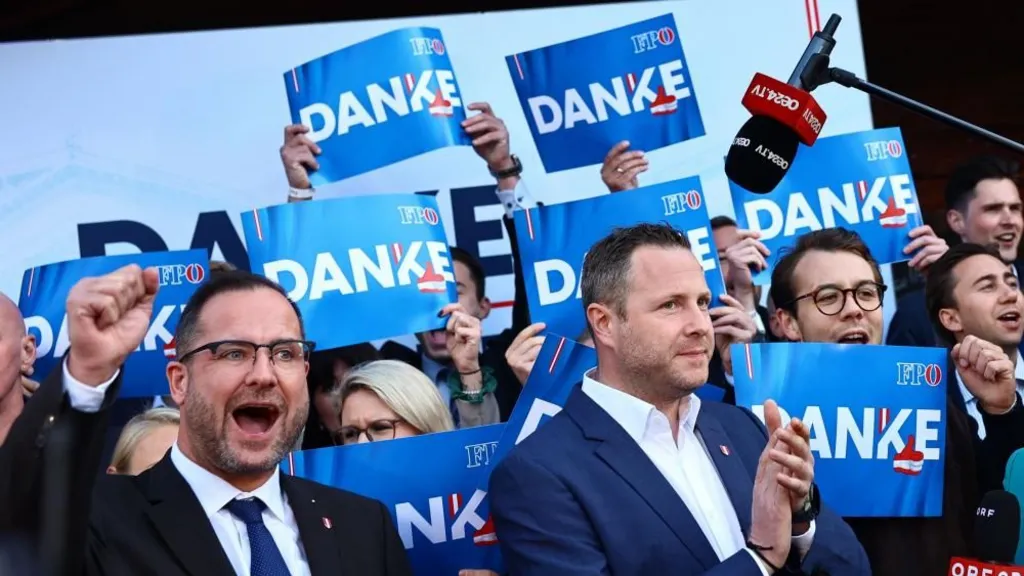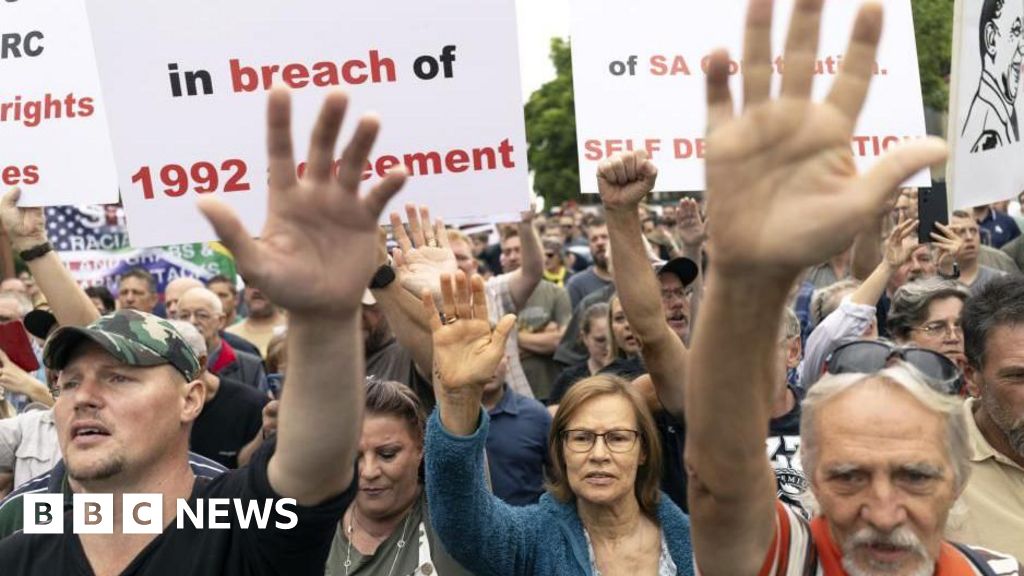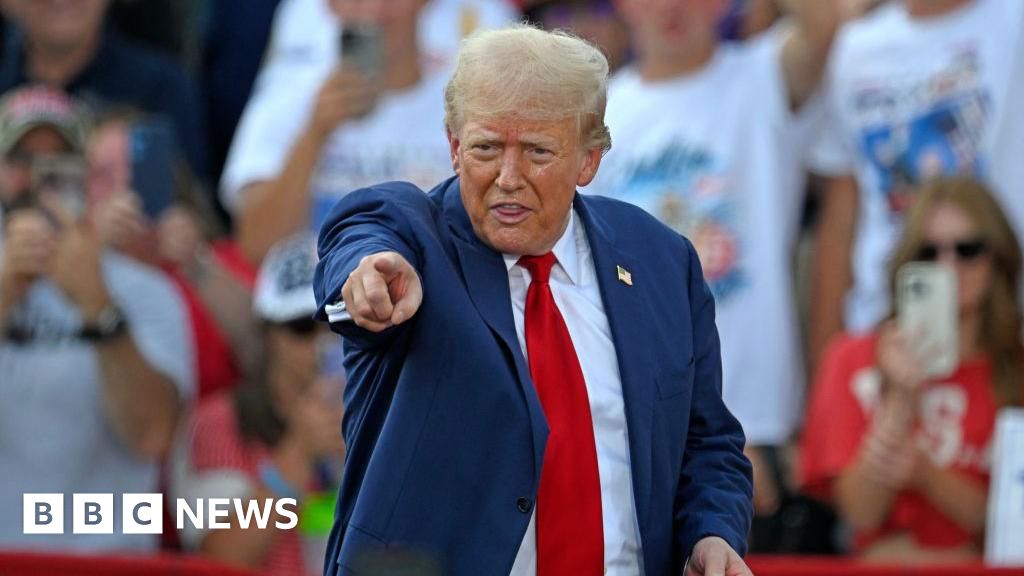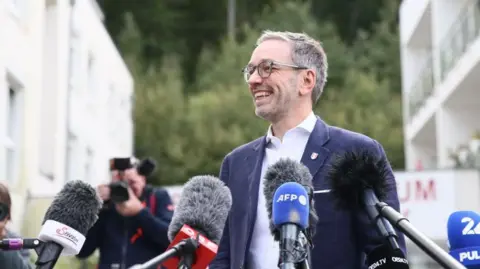 Getty Images
Getty ImagesAustria’s far-right Freedom Party is heading for an unprecedented general election victory under leader Herbert Kickl, projections say.
The projections, based on initial results, give Kickl’s party 29.2% – three points ahead of the conservative People’s Party on 26.2%, but far short of a majority.
The Freedom Party (FPÖ) has been in coalition before, but the second-placed conservative People’s Party has refused to take part in a government led by him.
Kickl’s main rival, incumbent Chancellor Karl Nehammer of the People Party (ÖVP), has said it’s “impossible to form a government with someone who adores conspiracy theories”.
Some 6.3 million Austrians were eligible to vote in a race dominated by the twin issues of migration and asylum, as well as inflation and the war in Ukraine.
Freedom Party general secretary Michael Schnedlitz was delighted with the initial projections, declaring that “the men and women of Austria have made history today”. He refused to say what kind of coalition his party would try to build.
They are on course to secure about 57 seats in the 183-seat parliament, with the conservatives on 52 and the Social Democrats on 41.
The Freedom Party’s fiery leader, Herbert Kickl, has promised Austrians to build “Fortress Austria”, to restore their security, prosperity and peace.
He has also spoken of becoming Volkskanzler (people’s chancellor) which for some Austrians carries echoes of the term used to describe Adolf Hitler in Nazi Germany. The party was founded by former Nazis in the 1950s.
Forming a coalition is likely to prove complicated for Herbert Kickl, who is a divisive figure.
The Social Democrats, Greens and Neos have all ruled out a partnership with the far right.
The only possible coalition Kickl’s party could form is with the conservatives, although the Freedom Party would have to find a solution to the People’s Party’s refusal to have Kickl as chancellor.
When Geert Wilders’ Freedom Party won the Netherlands’ election last November, he dropped his bid to become prime minister so that three other parties would agree to form a coalition. However, Kickl is keen to become chancellor, promising Austrians to act as their “servant and protector”.
Political analyst Thomas Hofer told the BBC it was by no means clear that Austrian President Alexander Van der Bellen, who oversees the formation of government, would give Kickl a “direct mandate to form a coalition”.
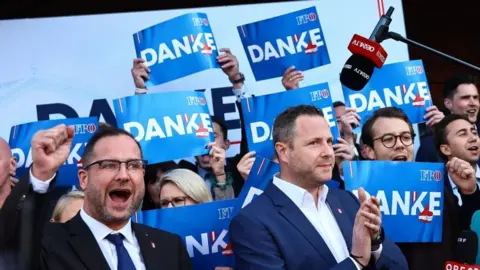 FILIP SINGER/EPA-EFE/REX/Shutterstock
FILIP SINGER/EPA-EFE/REX/ShutterstockThe People’s Party could in theory scrape together a coalition with the Social Democrats if latest projections are correct, and could attract the liberal Neos party or the Greens.
Van der Bellen has voiced reservations in the past about the FPÖ because of its criticism of the EU and its failure to condemn Russia’s invasion of Ukraine. The party opposes EU sanctions on Moscow, citing Austria’s neutrality.
Kickl’s projected victory is only the latest success for radical right-wing parties in Europe.
Italy’s Giorgia Meloni heads a right-wing coalition as leader of the far-right Brothers of Italy party and Germany’s AfD topped the polls in the eastern state of Thuringia last month.
Unlike Kickl, Italy’s prime minister has given her full backing to the EU’s defence of Ukraine in the face of Russia’s full-scale invasion.
Kickl has also tapped into fears about immigration in Austria and he has made the most of anger at the government’s handling of the Covid pandemic, embracing conspiracy theories about obscure treatments for the virus.
